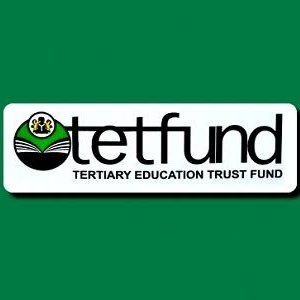
Chidimma Uchegbu
The Tertiary Education Trust Fund (TETFund) has issued a warning to beneficiary institutions that fail to properly utilize funds allocated for intervention projects, saying such institutions risk being delisted.
Executive Secretary of TETFund, Arc. Sonny Echono, gave the warning on Tuesday in Abuja during a two-day strategic workshop for directors of physical planning, academic planning, and Information Communication Technology (ICT) from institutions benefiting from the Fund.
Echono said the workshop reflects the Fund’s commitment to reinforcing the country’s tertiary education system by closing gaps in its processes and procedures, particularly through a better understanding of its intervention guidelines.
He emphasized that TETFund would not stand idly by while certain institutions fall short of expectations.
“Let me reiterate institutions that fail to access, utilize or retire funds in accordance with Fund guidelines or that underperform in key academic or operational benchmarks may face delisting as TETFund beneficiaries.
“This policy is not punitive but rather a mechanism to safeguard the integrity and effectiveness of our interventions,” he said.
Echono explained that the primary aim of the gathering was to build the capacity of key personnel responsible for planning, implementation, and monitoring of TETFund-supported projects.
“Our aim is to ensure that every institution represented here is well equipped to align more effectively with the Fund’s operational procedures for greater efficiency, accountability, and developmental impact.
“This engagement is more than a routine meeting: it is a strategic convergence designed to address recurring implementation bottlenecks, improve compliance, and enhance institutional performance.
“It is our collective responsibility to ensure that the gains from TETFund interventions are not only sustained but amplified through timely and judicious utilization of resources,” he added.
Echono also highlighted strategic priorities that will shape the Fund’s direction in 2025 and beyond.
On the TETFund Scholarship for Academic Staff (TSAS), he said TETFund had earlier suspended its foreign training component effective January 1, 2025.
“Firstly, regarding the Academic Staff Training and Development (AST&D) intervention, as you are all aware, the Fund has suspended the foreign training component of the TETFund Scholarship for Academic Staff (TSAS), effective January 1, 2025.
“This decision, though difficult, was necessitated by the rising costs of overseas training and incidences of scholar abscondment. However, our commitment to building local academic capacity remains strong. We will continue to support rigorous local postgraduate programmes and professional development initiatives that deliver value at sustainable cost,” Echono said.
He also reaffirmed the Fund’s focus on research and innovation, noting an increase in funding for various initiatives.
“Secondly, research and innovation remain central to our mandate. For 2025, we have scaled up funding to the National Research Fund (NRF), the Research and Innovation Fund, and the Triple Helix Model for research-industry collaboration.
“These initiatives are expected to generate practical solutions to national problems, particularly in technology, agriculture and healthcare, while fostering commercialization and cross-institutional partnerships,” Echono stated.
The workshop, which was also held across the six geo-political zones of the country, witnessed papers presentations, questions and answers sessions, among others.

Join the Conversation